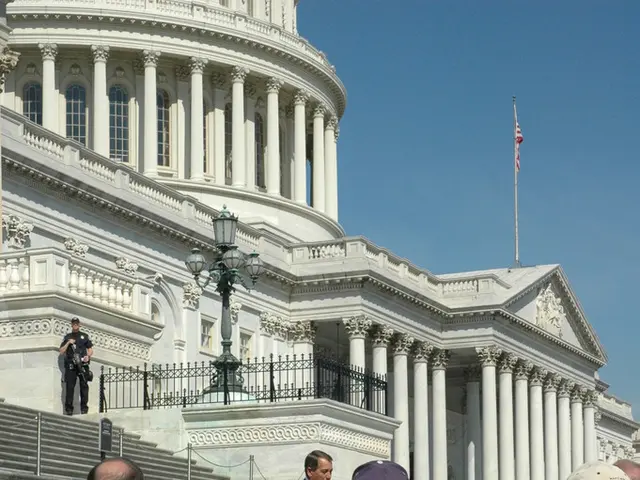Strategies for Crafting Outstanding Retirement Announcements, Including 10 Example Templates
Retiring? Congrats! Kick-start your new chapter with panache by giving formal notice in style. With our guides and templates, you'll breeze through the transition process like a pro.
What's a Retirement Resignation Letter?
A retirement resignation letter is a formal document that declares your departure from a job for retirement purposes. It's usually presented with a face-to-face discussion regarding your transition plan alongside the letter.
In some cases, you might have informal chats with your supervisor about your retirement plans beforehand, allowing for an organized transition timing within the organization's planning and fiscal cycles.
Retirement vs Standard Resignation
Key differences between a retirement resignation letter and a standard resignation letter lie in the reasons and benefits offered to the company. While a standard letter signifies the end of employment, a retirement letter alerts the company about your plans to stop working and start collecting retirement benefits, typically through an employer-sponsored pension.
A longer notice might be necessary based on company policy and position, and providing ample notice demonstrates professional courtesy. This will also enable the organization to recognize your achievements and contributions, plan a retirement party, and prepare for your departure.
5 Awesome Benefits of Formally Announcing Your Retirement
Studies show that poor communication and collaboration cause most workplace failures[1]. Issue a retirement resignation letter, and you'll eliminate doubt about the transition for both you and your employer.
Here's what you gain:
- Clear Communication: By sending a formal letter, you ensure a clear understanding of your intentions and the impending change for your employer.
- Show Respect: Research shows respect ranks as the top leadership behavior[2]. By writing a letter, you demonstrate respect for your company and team.
- Emotional Relief: Retirement marks a significant life change, and sharing your decision publicly may help you experience emotional relief.
- Planning: Communicating your retirement lets you and the company plan for the future, enabling them to initiate recruitment, activate your retirement benefits, handle unused vacation, and finalize your compensation.
- Record for Future Reference: Since your resignation letter is part of your employee file, a formal document preserves all important details like your full name, current job title, departure date, and retirement date if different.
Transform your interpersonal skills with our offerings at People School:
- Create an Unforgettable Presence
- Communicate with Swagger
- Achieve Your Wildest Goals
Join People School – Email the Website Support for help
Characteristics of a Killer Retirement Resignation Letter
A fantastic retirement resignation letter includes the following elements:
- Formality: Use the traditional business letter format with the date, address block, salutation, body, and closing. Include personal contact information beneath your signature to ensure separation papers reach your home rather than the office.
- Correct Addressing: Address the letter to your direct supervisor or the person responsible for personnel matters.
- Specifying Your Retirement Date: Detail your retirement date to help the company prepare for your departure.
- Expressing Gratitude: Thank your employer for your experiences at the company, the skills developed, lessons learned, and favorite memories.
- Offering Help: Display your willingness to collaborate during the recruitment and onboarding process.
- Professionalism: Keep the letter concise, polite, and free of negative comments about the company or coworkers to maintain a positive tone.
Now, let's dive into our tips for delivering your retirement resignation letter:
Pro Tips for Delivering Your Retirement Resignation Letter
- Preparation: Prepare your letter before the meeting with your superior. Ensure it's well-written and free of errors to convey your professionalism.
- Give a Hard Copy: Deliver the letter physically during your meeting to set a respectful tone and signify your intentions.
- Share it Appropriately: Send the letter to your immediate supervisor and the HR department, if necessary. In most cases, your paperwork will process smoothly once your employer receives the letter.
- Follow-Up: If you haven't heard back after several days, feel free to follow up to confirm they received the letter.
Upon embarking on this new phase of your life, consider enhancing your personal growth and career development by enrolling in education-and-self-development courses. Such pursuits can contribute to a more fulfilling lifestyle as you transition into retirement.
Additionally, ensure that your retirement lifestyle is financially sound by carefully planning your retirement benefits and investments. Seek professional guidance if needed to secure a comfortable and sustainable standard of living during your retirement years.








